When it comes to international trade, one of the most crucial aspects of ensuring your goods arrive safely and on time is to make sure you have the right import documents in place. Whether you’re shipping technology, electronics, or consumer goods, failing to provide the necessary documentation can lead to delays, fines, or even seizure of goods.
Let’s explore the five most important import documents you need to know about when shipping internationally. We’ll also cover the consequences of missing paperwork, specific country requirements, and some additional documentation you may encounter during the shipping process.
The Top 5 Key Import Documents
According to World Craft Logistics, incorrect import documents sits at the top of the list for reasons that shipments get delayed.
To ensure your imports clear customs without delays, here are the five key documents you’ll need for your high-value tech shipments:
1. Commercial Invoice (CI)
The Commercial Invoice (CI) is one of the most vital import documents. This document acts as the primary proof of sale between the exporter and the importer. It contains details such as the buyer and seller’s information, a description of the goods, their value, and the terms of the sale.
Why It’s Important:
- It determines the customs duties and taxes the importer will have to pay.
- It serves as a legal document for resolving disputes between buyers and sellers.

Penalties for Missing a Commercial Invoice:
Failure to provide an accurate and complete CI can result in delays at customs, fines, and potentially the refusal of goods. The customs authorities may delay clearance until proper documentation is submitted, leading to unplanned storage fees.
2. Bill of Lading (BOL)
A Bill of Lading (BOL) is a legal document issued by the carrier that serves as evidence of the contract of carriage and receipt of goods. It also serves as a title to the goods, which means whoever holds the BOL has legal ownership.
Why It’s Important:
- It is required by customs authorities to verify that goods are being shipped.
- It outlines the terms under which the goods are transported, including the delivery method and destination.
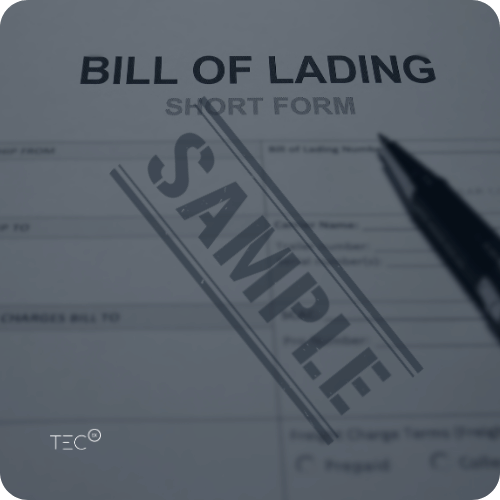
Penalties for Missing a Bill of Lading:
Without a BOL, your shipment may be stranded at the port of arrival, and you could face substantial fines and penalties for non-compliance. Additionally, a missing BOL can lead to confusion over the ownership of the goods, complicating delivery and customs clearance.
3. Certificate of Conformity (CoC)
A Certificate of Conformity (CoC) certifies that the goods meet the necessary regulatory and safety standards of the destination country. Some countries, such as those in the Middle East (e.g., Saudi Arabia) and Africa (e.g. Egypt), require a CoC for most electronic goods, machinery, or chemicals.
Why It’s Important:
- Many countries, such as Kuwait and Cameroon, require a CoC to confirm compliance with safety, environmental, and health regulations.
- It helps avoid delays in customs clearance due to non-compliance with local laws and standards.
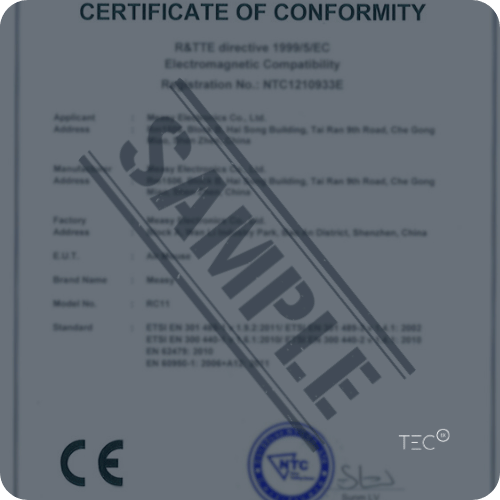
Penalties for Missing a Certificate of Conformity:
If you fail to present the necessary CoC, customs may refuse entry of the goods into the country. This could lead to expensive delays, storage charges, and the potential return or destruction of goods.
4. Country of Origin (COO) Certificate
The Country of Origin (COO) certificate specifies the country where the goods were manufactured or assembled. This is especially important in markets with trade restrictions, tariffs, or free trade agreements. For example, countries that require a COO include China and Pakistan, who have restrictions on certain goods from the US and Israel respectively.
Why It’s Important:
- It is required to determine the correct tariffs and import duties.
- It ensures compliance with trade agreements between countries.
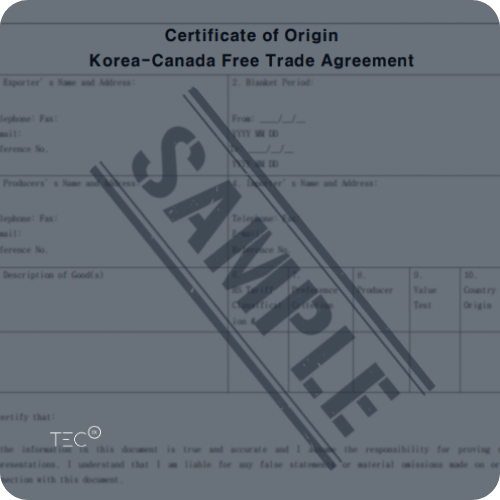
Penalties for Missing a Country of Origin Certificate:
Not having a COO could result in incorrect duties being applied to the goods or, worse, a total delay or rejection of the shipment.
5. Airwaybill (AWB)
An Airwaybill (AWB) is used when goods are transported by air. Similar to a BOL for sea shipments, an AWB is a receipt issued by the airline carrier, detailing the flight route, the sender, and the recipient.
Why It’s Important:
- It serves as proof of the goods’ shipment and includes the terms and conditions of the air transport.
- It helps customs track the shipment’s location and status.
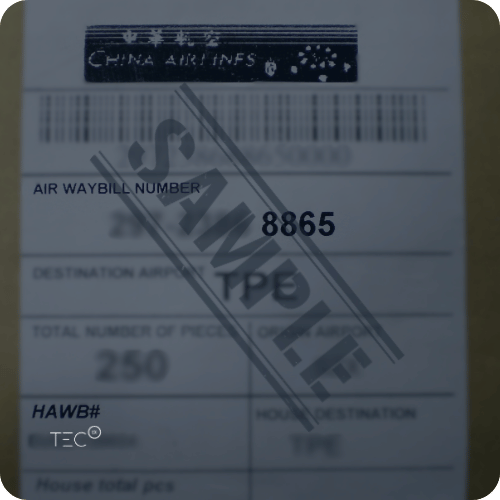
Penalties for Missing an Airwaybill:
Without an AWB, the shipment may not be allowed entry into the destination country. This can cause delays, fines, and additional fees for reprocessing the goods.
Other Essential Import Documents and Considerations
In addition to the five main import documents discussed above, there are other documents you might need to provide depending on your shipment’s specifics.
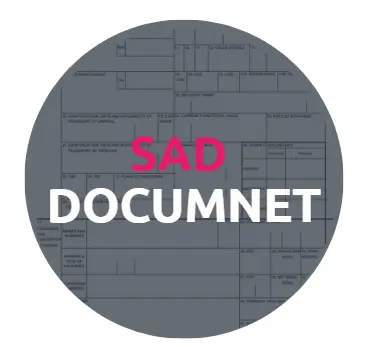
1. Single Administrative Document (SAD)
The Single Administrative Document (SAD) is a customs document that ensures goods comply with a country’s legal authorities. It is mandatory for trade with the European Union and other European countries. The SAD streamlines the customs process by standardizing the format of customs declarations.
There are two types of SADs:
Import SAD
An import SAD is required for all goods entering the country. It is used to officially declare the entry of goods at customs.
Export SAD
The export SAD is necessary to get goods out of the country. It provides in-depth information about the exporter, the importer, and the destination where the goods are going.
The SAD contains information on the mode of transport, packaging information, information on the parties involved, and details of the value of the goods. TecEx can handle the intricacies of the SAD document, allowing goods to pass through customs seamlessly.

2. Power of Attorney (POA)
A Power of Attorney (POA) may be required for customs clearance. This document gives an appointed third-party, such as an IOR or customs broker, the legal authority to act on your behalf in customs procedures.
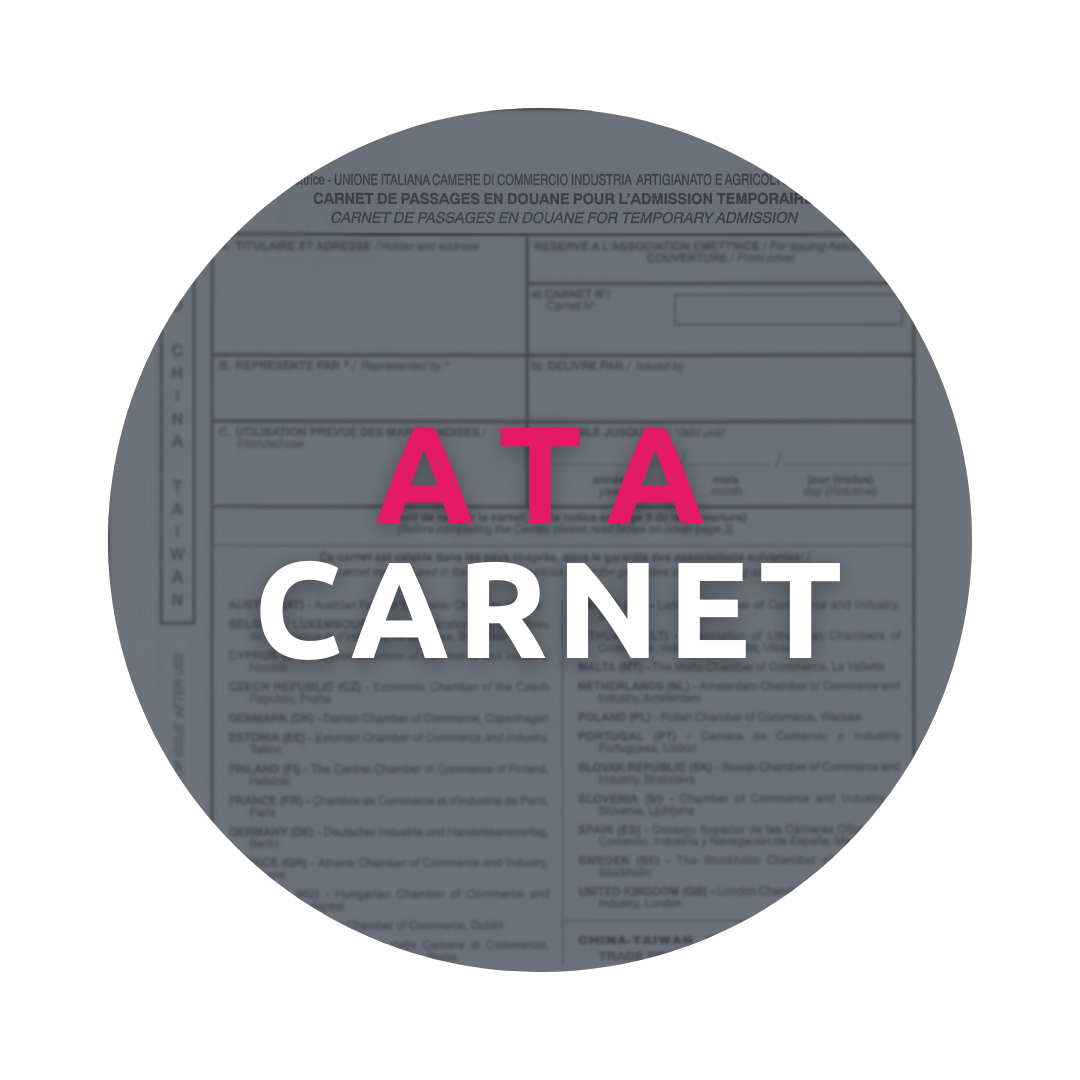
3. ATA Carnet
An ATA Carnet is an international customs document that allows goods to be temporarily imported or exported without paying duties and taxes. It is typically used for trade shows, exhibitions, or temporary business operations in another country.
Country-Specific Document Requirements
In addition to the above import documents, different countries may have their own specific import documentation requirements. Examples of these include:

Hong Kong (HKTID)
Hong Kong requires the Hong Kong Trade and Industry Department ID (HKTID) for certain restricted goods.

India (EPR)
The Extended Producer Responsibility (EPR) certification is required in India for electronic goods.

Mexico (NOM)
Mexico requires compliance with the NOM (Official Mexican Standards) for specific goods.

South Africa (ITAC)
The International Trade Administration Commission (ITAC) governs import permits for specific goods in South Africa.

Angola (CNCA)
Since 1994, this waiver certificate has been a mandatory document for all shipments with a final destination in Angola.

United Kingdom (Export Licenses)
Due to the fallout of Brexit, the UK may require an export license for controlled goods. Read more on our UK EOR Solution.
These are just a few countries with specific prerequisites when it comes to shipping. Each country has unique regulations, so it’s important to research the specific import documentation requirements for the countries you’re shipping to.
Do you need to ship to a country but not sure about the import compliance requirements? Check out our global capabilities for insights into your destination. Or better yet, reach out to our experts for a customized solution today.
Get Accurate Import Documents No Matter the Destination
Properly managing import documents is essential for smooth and efficient international trade. Failing to have the right paperwork in place can result in significant delays, fines, and additional costs. At TecEx, we specialize in import, export, and trade compliance to ensure your goods move smoothly across borders. From understanding the nuances of import documents to navigating country-specific regulations, we’re here to help you streamline your global supply chain.



